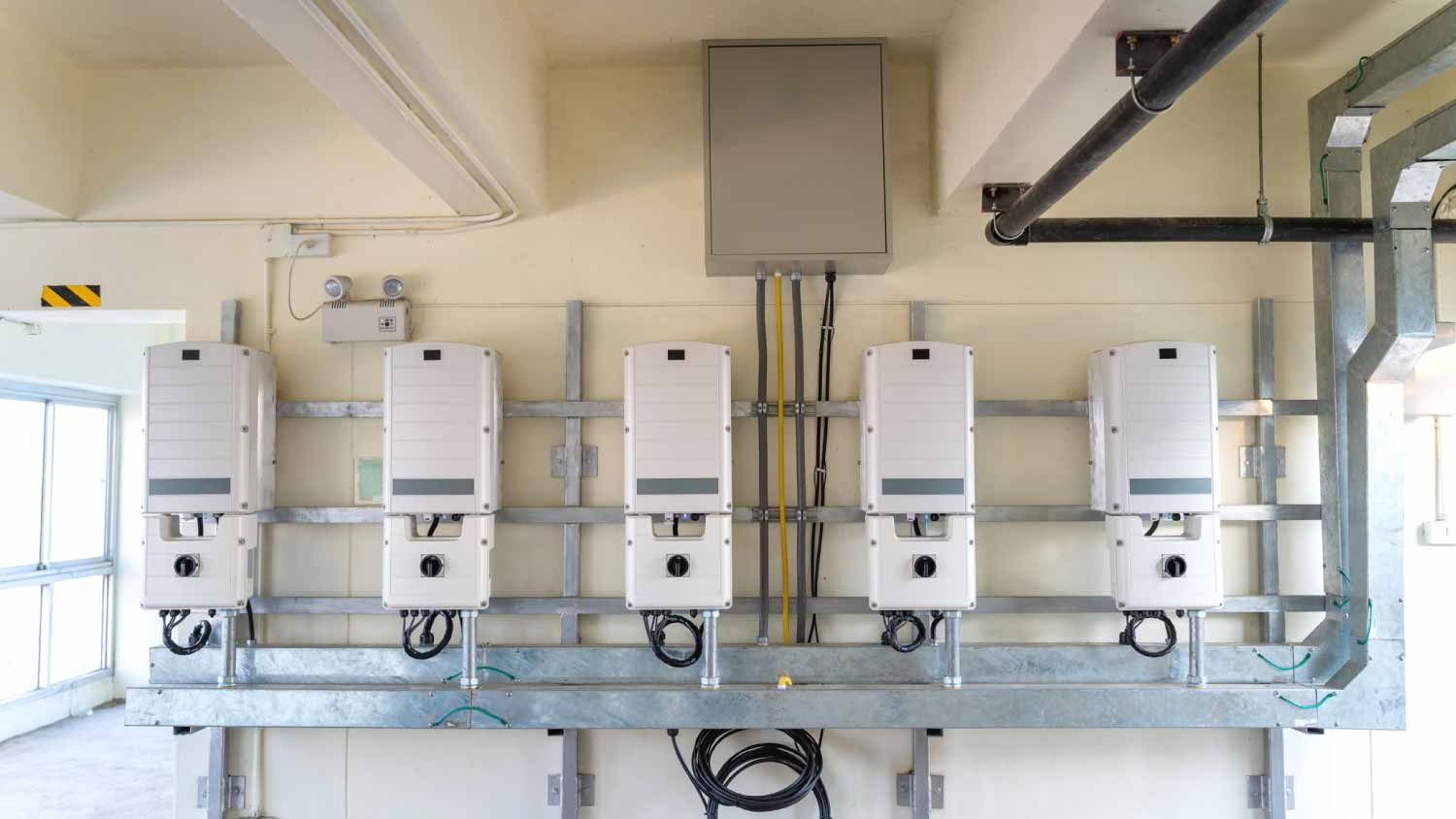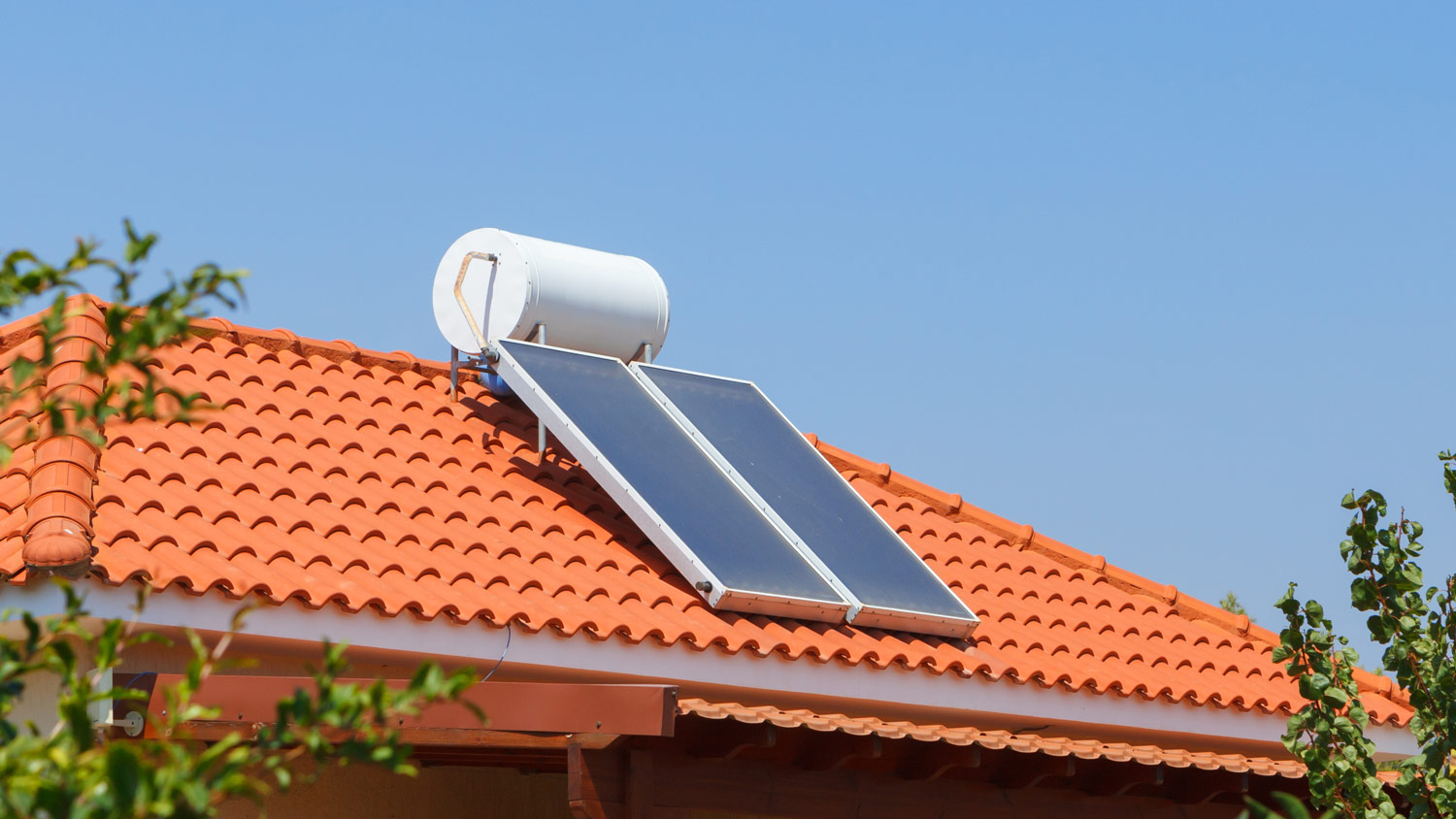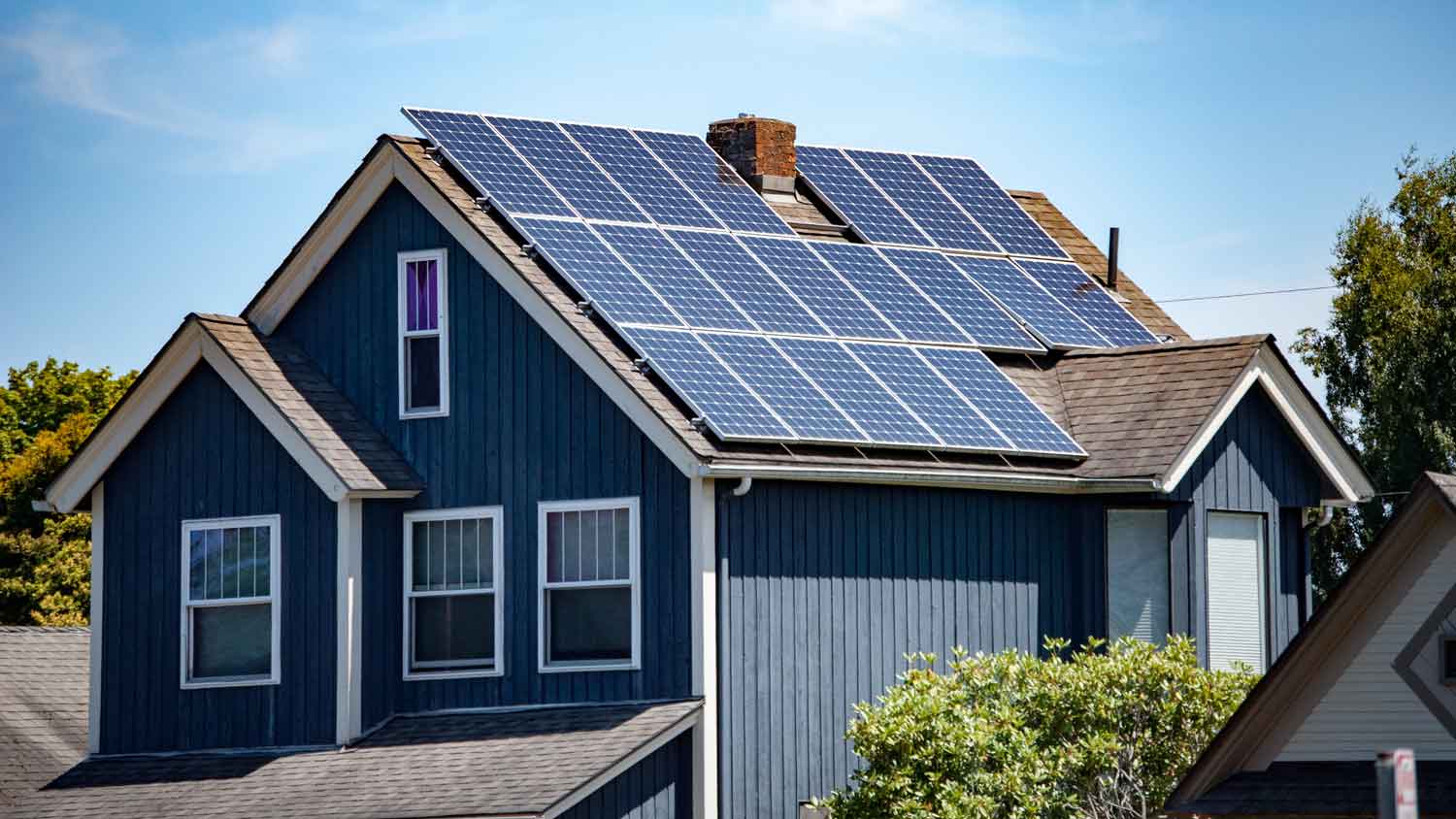
Discover the average solar panel installation cost, key price factors, and expert tips to help you budget for your solar project.
Store that excess energy


Hire a solar panel installation pro to identify the best type of solar batteries for you based on your budget, needs, and preferences.
If you’re looking for an affordable yet reliable option, lead acid batteries fit the bill.
Lithium-ion batteries cost more upfront but offer greater efficiency and a longer lifespan.
Flow batteries are ideal if you have a larger-scale solar installation.
The main types of solar batteries are lead acid, lithium-ion, and flow batteries. Of these types, some are better suited to residential solar panel systems, safety needs, and budgets than others. When you’re deciding which type of battery is right for your home, you should take into account the up-front and ongoing costs, life span, safety concerns, and storage capabilities, among other factors. If it sounds complicated, it kind of is. But that’s why we’re breaking it all down for you.
| Type of Battery | Life Span (In Years) |
|---|---|
| Lead acid | 3–5 |
| Lithium-ion | 5–15 |
| Flow | Up to 30 |
Lead acid solar batteries have been around the longest and are the most affordable type of solar battery. However, the arrival of more efficient solar battery technology means that lead acid batteries have taken a backseat to the other types. You can still purchase lead acid batteries for your solar panel storage system, and they may be a good choice if you live in an area with extreme temperatures since they are better able to handle hot and cold than other types.
There are two types of lead acid batteries: flooded and sealed. Flooded lead acid batteries contain liquid that needs to be refilled periodically, while sealed lead acid batteries have a closed system that doesn’t require maintenance.
Unfortunately, even though lead acid batteries are more affordable than lithium-ion batteries, they have a shorter life span. They are also slower to charge, and flooded types require more maintenance to make sure they’re in good condition and able to hold their charge. But you can discuss the cost versus savings benefits with your local solar panel installation professional.
| Pros | Cons |
|---|---|
| More affordable | Larger than other solar batteries |
| Able to handle greater temperature fluctuations | Requires more maintenance |
| Has been around for a long time | Slower to charge than other types |
Best for: Cost-conscious homeowners who need reliable solar battery backup
Lithium-ion batteries represent an advancement in solar battery technology as they have a high energy density and can store more energy in a smaller space. In fact, there are a few different types of lithium batteries that power a number of everyday devices, including power tools, laptops, e-bikes, solar street lights, cars, and homes. Solar panel systems typically use either lithium nickel manganese cobalt oxide (NMC) or lithium iron phosphate (LFP) versions to store solar energy and convert it to electricity.
Because this technology is newer and more efficient, lithium ion batteries cost more than lead acid batteries. While lead acid batteries shouldn't discharge more than 50% of their capacity regularly, lithium-ion batteries can typically discharge between 80% and 100% of their capacity without increased degradation.
An issue that arises with lithium-ion batteries is that they are more prone to thermal runaway, which can result in a fire if the battery gets overcharged or overheated. To reduce this likelihood, your system should have a charge controller that can manage how much the battery is charged.
| Pros | Cons |
|---|---|
| Smaller than lead acid batteries | High up-front cost |
| Higher density to hold more charge | Possibility for thermal runaway (fire) if not properly monitored |
| Longer life span | Requires specialty installation |
Best for: Homeowners who want a compact and efficient battery
Flow batteries consist of two tanks rather than just one as with the other two types. One tank holds a positively charged solution and the other holds a negatively charged solution. The solution flows between the tanks to store and discharge energy. This is a newer technology than the other two main types of batteries, and these batteries take up a lot of space because their low thermal density requires more space to store an adequate amount of energy.
Because of the amount of space they take up and their high costs, they are better suited for large-scale grids that require a substantial amount of energy storage. They are also more expensive than the other two types of solar batteries.
| Pros | Cons |
|---|---|
| Best suited to large-scale solar panel systems | Not ideal for residential applications |
| 100% discharge | Requires lots of space |
| Longest life span | Low storage capability |
Best for: Large-scale solar installations

Choosing a solar battery means weighing the pros and cons of solar battery storage. Solar batteries give you the ability to store excess energy produced by your solar panels, but they add costs to an already expensive undertaking. With some batteries, there are also safety concerns, and it’s important to understand the solar battery’s storage capabilities before making your final decision.
Cost can be a big factor in deciding which type of solar battery to go with. Solar batteries can cost between $6,000 and $12,000 but can cost as much as $30,000 depending on the type and how many you need to power your home.
Lithium-ion batteries cost more than lead-acid batteries, but they also have a higher density and can store more energy in a smaller battery. They also last longer, so replacement costs will be lower. The up-front costs for lead-acid batteries are lower than other types, but they also don’t last as long, so you’ll need to replace them more frequently. Another cost factor is how many solar batteries you'll need to power your house.
Lithium-ion batteries come with the risk of thermal runaway. In simple terms, thermal runaway means the possibility of the battery catching on fire if the solar battery becomes too full or overheats. While this risk is low and can be further reduced by including a charge controller in your system, it’s still a risk factor that you should be aware of.
Higher-density solar batteries, like lithium-ion types, can store more energy in a smaller space, and lower-density solar batteries, like lead acid batteries, can store less. The storage capabilities don’t just come down to efficiency but also factor in the actual space you have available at your home for the battery itself. If you choose a lower-density lead-acid battery, it will cost less, but you’ll need a place to put it. How to size solar batteries for your home will depend on their storage capabilities and your energy needs.
If you have a solar panel system and the budget for solar batteries, then it’s best to stick with batteries. But if you are looking for a more affordable option for emergency power, a generator might be the better choice. To choose between solar batteries versus a generator as the best backup power solution, you should factor in the ongoing fuel and maintenance costs of a generator and the higher up-front costs of solar batteries as well as environmental impacts and convenience.
From average costs to expert advice, get all the answers you need to get your job done.

Discover the average solar panel installation cost, key price factors, and expert tips to help you budget for your solar project.

Get a detailed estimate of solar farm costs. Learn about average prices, key cost factors, and ways to save when planning your solar farm project.

Get a clear estimate for solar water heater repair cost. Learn what impacts pricing and how to budget for your solar water heater repair.

Want to run your solar system without a battery? Here are the pros and cons, as well as what you need to know about how to use a solar panel directly without batteries.

Your solar system batteries are the real MVPs for keeping the lights on. Click to learn how many solar batteries are needed to power a house.

Discover solar panel maintenance costs, including average prices, cost factors, and tips to save, empowering you to keep your solar system running efficiently.